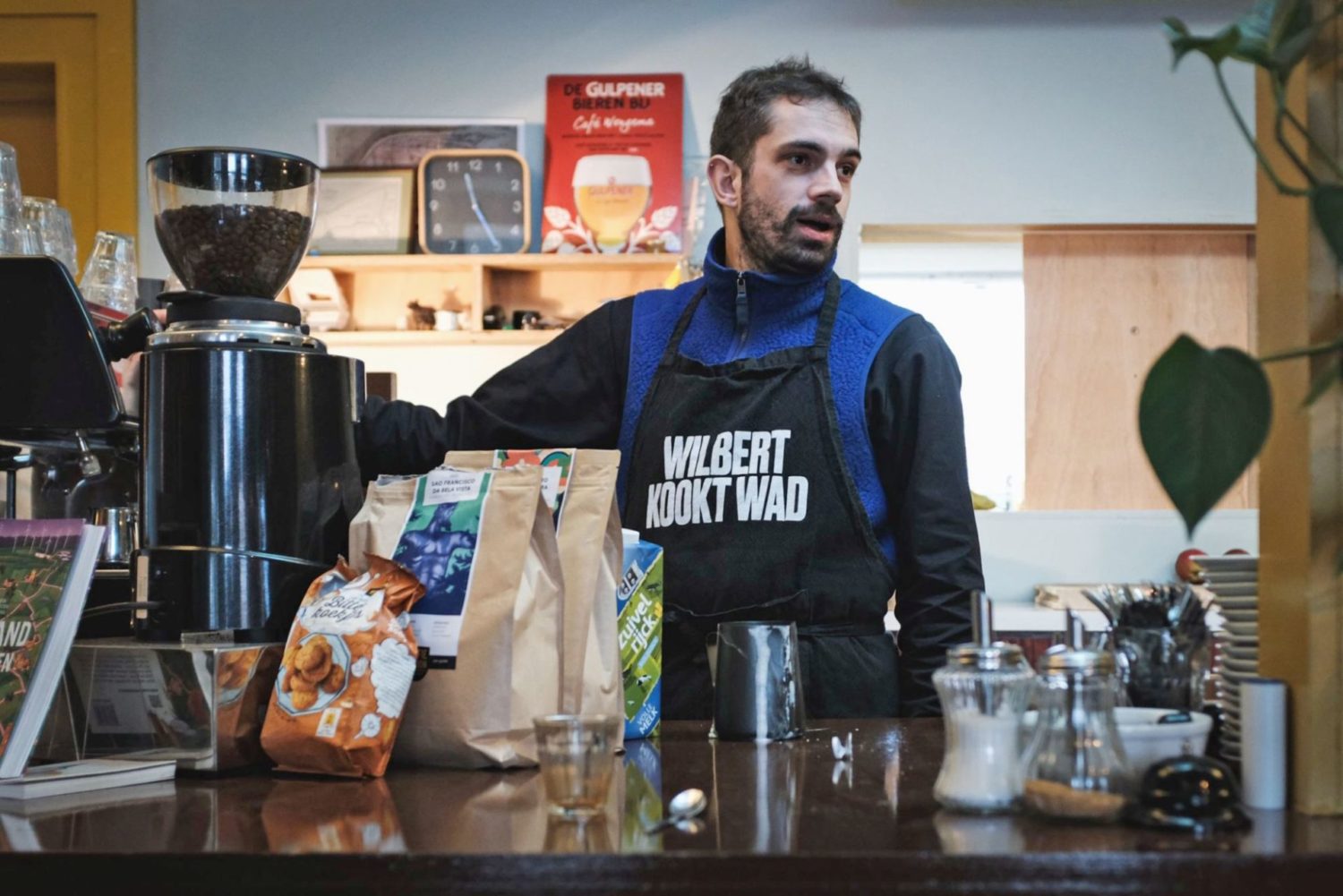Drives are the real engine behind growth and development, but to what extent are companies in the Northern Netherlands consciously
engaged in this? And how do they approach it? NOM is curious and, for this column, interviews organizations that are actively exploring their motivations.
actively investigate.
'Nice that NOM wants to talk about anti-capitalism,' responded Wilbert van de Kamp when making the appointment for an interview about his motivations. 'I agree,' because this topic is inescapable, anyone who follows Van de Kamp a little bit knows. What not everyone knows is how he suffered burnout six months ago and was more or less forced to take time to examine his motives. After a month all alone in the Veluwe, without social media, he then radically changed course.
Demystifying and deconstructing
'In that forest I wanted to get rid of having to do things and get used to doing nothing. I believe that change does not come from doing things differently, but from deconstructing things. Not wanting to become a different man, but wanting to peel off and banish a toxic aspect,' Van de Kamp explained. 'Actually, I was doing way too much, I was constantly creating things. Omapost, the talk show 'Left-wing men solve it,' at one point there were fifteen projects running and I had an assistant to handle everything. Plus a beautiful house on the canals of 1,100 euros a month where I never invited anyone, because I didn't have time for that. The craving for status, money, fame: I let everything slip away from me in the woods of Vierhouten. In search of what I really wanted. And where my frustration came from, because that was getting in the way.'
Rest in Hornhuizen
That deconstruction helped. He returned to Groningen, cancelled his lease, moved to a small house in a garden in Hornhuizen, and instead of picking up his previous work, plunged into Wongema. "I had forgotten how much peace the countryside gives me versus the constant stimuli in the city. I really needed that." From 100 m2 to 30 m2, but actually so much more space. Van de Kamp: "What I started to see is that I was doing a lot of things that seemed like a solution to a problem, but actually weren't. We actually see more and more examples of that. Why do we need a flash delivery service? Because we forget to buy stuff at the supermarket? Or because we find it easier not to have contact with other people? Then we have to start thinking about how it is that we forget. In his own words, he has now learned to be patient and wait more often, instead of immediately
jumping on something or trying to solve it. That also helps appease his earlier frustration: 'Eventually I noticed that I was doing a lot of work to compensate for people failing to do their jobs. Take Omapost: by sending a card to a lonely elderly person, I think I am contributing to solving that loneliness. But if I am honest, it is precisely that loneliness that should be addressed. In that, we are still dependent on the government and politics. And they don't, because there is far too much mediocrity there and far too many people working there who translate their own drives into a big house, big car, nice vacation and into status.'
Doing small things very well
The ambition to want to change things in the world is still there. Only the scale and how, has changed. 'Instead of big, bigger, biggest, I now focus on small things and then doing them really well.' For example, at Wongema: a place to work, eat, sleep, live and learn in beautiful Hornhuizen. A place that is kept alive by Van de Kamp, but especially by the village and the collective behind Wongema: "It is not difficult to maintain a place like this if money is not important. We exchange a lot of services, we buy almost everything locally, if there's a big washing up I send a message in the app group and right away someone from the village is there to help. The main reason Wongema works is because there is no revenue model. Economics don't matter here. In that sense, in the past year, I have shirked many things. Except for what I love most: bringing about encounters between people so that beautiful things are created. In Wongema, but also beyond. I have also come to realize that the things you do should be done for yourself. And so not for others or for status or for fame. That requires you to have a good sense of what you want, what makes you happy. So I pay much more attention to that.'
Conversation by conversation
In order to change, both at the individual level and at the system level, small steps can also or even just work, van de Kamp has discovered. At Wongema it's now a matter of lamp by lamp, potato by potato, conversation by conversation. And I'm not more creamy than the Pope, of course I still have an ego and I'm full of paradoxical choices that people can find fault with. But that doesn't matter. As long as I understand it myself. In that sense, I am milder than I was a few years ago. The unfairness I see is due to a system, not to individuals within that system. Although ultimately we are all the key to change. But that may be done step by step so that we can solve the problem we have. And that problem is indeed still capitalism," Van de Kamp laughs.
